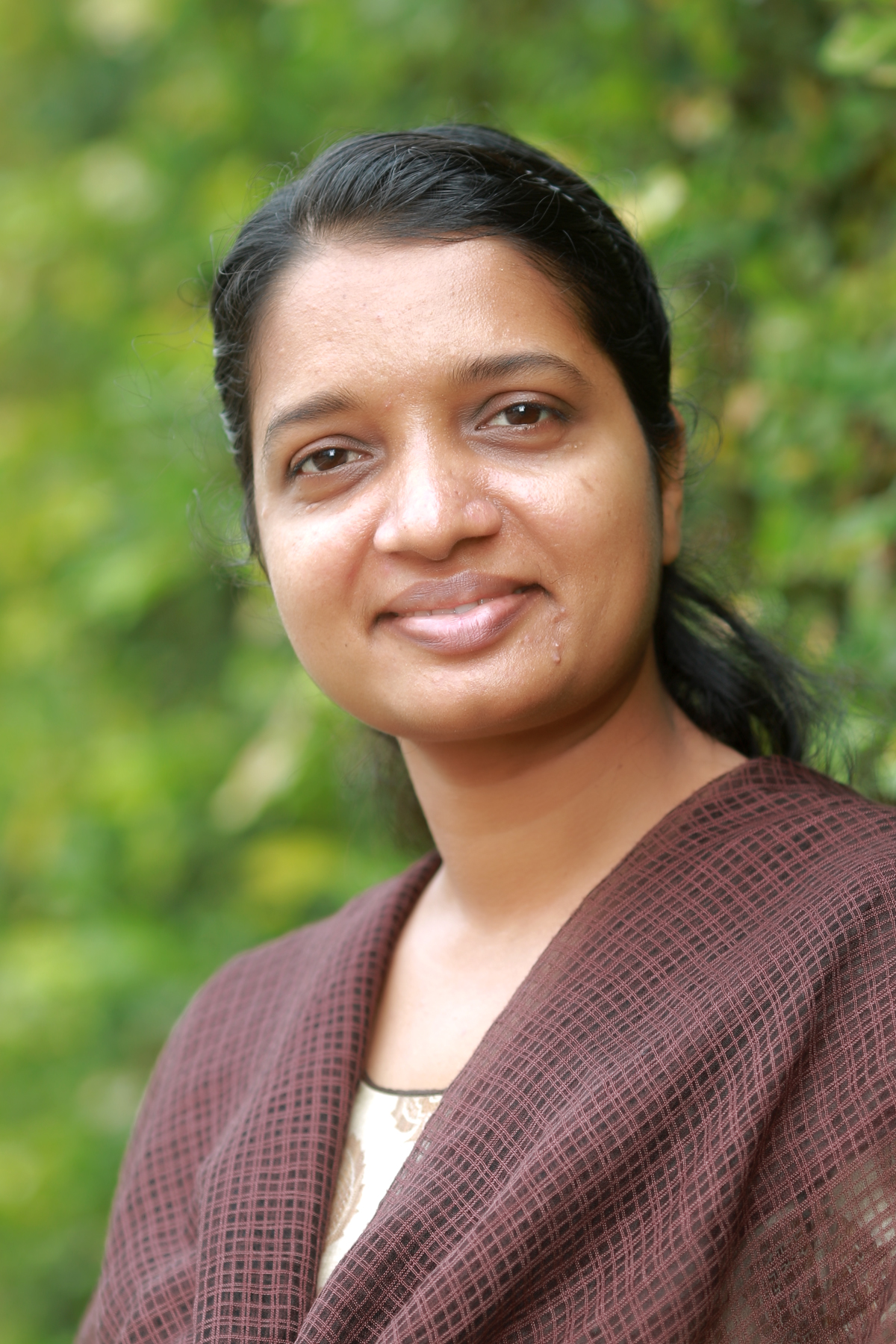

Is Homeschooling a Viable Option for Parenting?
Ms. Ida Mary John
Two years ago I attended a one day get together of Christian families in Kerala who were homeschooling their children. It was interesting to hear of this in Kerala though I was familiar with homeschooling from friends from the West. How can homeschooling be possible in the Indian context? The day in the conference was an eye opener. The title of this article is my enquiry of that day. Is homeschooling a viable option? I realised even in the Indian situation that there have been quite a number of Christian parents (even non Christians) who opt for home schooling.
Merriam Webster dictionary defines ‘home schooling’ as, “to teach your children at home instead of sending them to a school.” In other words, it means, a home is a school whereby parents become the teacher for the kids. Homeschooling basically opposes public schooling or formal education model. To understand homeschooling, we first have to understand the present education system and how it has developed.
Beginnings of Education
Education was part of any society from the ancient times even without the awareness of it. Skills were taught from generation to generation. Families handed down their art and architectural abilities and skills to the next generation. They learned it by sight and sharing, living together within the community. Knowledge and practice of medicine was treasured and handled by certain families or individuals. Medical practices often went along with religious support and beliefs. Philosophical outlook also gained root, concentrating on a teacher and his teachings, at an early stage especially in the Greek world.
The place of monasteries in education cannot be forgotten. Monasteries were places of meditation where learning grew not only of languages and scriptures but also of experiments in agriculture, farming, dairy and medicine. Caring for the sick was an obligation and thus learning new medical practices were important. The contribution towards education by monasteries continued through the centuries through different Orders and monastic schools.
The era of modern period brought drastic changes in the field of education. The Aristotelian metaphysics was challenged by Newtonian science. Reason became supreme. Human beings and reason got importance at the place of fear and faith. Religious authorities were questioned. Gradually, the new era of university educational system developed.
Public or formal education started at a later stage. Even in the 1800s, education was not of great need for a society which struggled for survival. Child labour was common and children were greatly used in industries in the industrially developing societies. It was in England that education for two hours per day was made compulsory, for those working in factories by the government for the first time in history. In the beginning of 1900s also only the wealthy could get some education in the form of tuitions at home. Gradually, those who were aware of the Enlightenment that took place in Europe began to advocate for state-sponsored public education, for the creation of better citizens and leaders. Many European nations and United States passed laws to promote formal education even among the poor. There were number of challenges even at the start of modern or the formal education.
In the modern times Christian parents were not supportive in their attitude to public formal education. They were rather interested in raising their children in their own religious outlook and faith. In the following times, there was pressure upon the existing church schools from civil authorities to standardise along the line of public/formal schools. However, even in the subsequent years there were many who stood for alternative education systems though it was made mandatory by twentieth century for children to attend school.
The increasing popularity of homeschooling
The end of twentieth century saw a movement which gained momentum, especially from 1970s in the United States and many other parts of the world from parents who wanted to home school their children. There was wide support and popularisation for homeschooling in most part of the US and by 1982 it was made legal in most of the states. Some of the popular authors of those times on homeschooling are John Holt and Dorothy and Raymond Moore. It is said by some statisticians like National Home Education Research Institute that there are above two million children homeschooled in the US and more than fifty thousand in the United Kingdom. The number is only increasing every year. In most places the homeschooling parents began to come together and have good networking among them. Most of them were Christians and had their own gatherings and national conferences, classes, field trips or similar events. They often shared common faith and conservative views with regard to politics, music, entertainment and dressing. Some of these features can be seen in other parts of the world as well as India. The popularity of homeschooling can be seen through the network that they have developed. There are associations and face book groups of homeschoolers even in India.
Why Homeschooling?
There are different reasons for the increasing popularity for home schooling. Parents in large numbers were insecure and lacked faith in the traditional patterns and emphasis of formal education. Following are some observations on why homeschooling is gaining root across the lands.
1. The major reason is religious: The parents with strong religious faith feel that the present education system promotes only secularism which opposes their religious faith. Secularism is supportive of the evolution theories and positive about homosexuality and less concerned about pornography. It considers Religion an outdated and unwanted social evil and is less concerned with the growing moral degradation;
2. Early Education: some parents are against giving education at an early age as demanded by the public educators. They believe that pressurising at a tender age can be harmful.
3. Limitations of Traditional Education: Many parents believe that the traditional education is not really bringing progress. They think that the traditional formal education is not competitive enough for their children. Parents who were well qualified often felt that the education provided to their children is not up to good grades and wanted to educate their children themselves. There are families of which both the husband and wife are well qualified and employed; one of them willingly opting out of their job to educate their children instead of both going for work. Parents also feel that the traditional schooling system provide only academic learning system not oriented to the real ability of the children. Venus and Serena Williams are examples of homeschooling who were trained to be tennis players
4. Time factor: Many wanted the advantages of homeschooling. The greatest advantage is that the parents will get more qualitative time with the children. At the same time children get opportunities to spend time for other activities and skills. Moreover homeschooling can provide one to one personal attention to the students
5. Exposure: Some parents are happy and argue that by homeschooling children can avoid influence from other children of different values and faith. Thus exposure into unnecessary trends and habits can be avoided.
6. Uniqueness of each child: Padmashree Tadepalli, an educational consultant is of the opinion that each child is unique even in their learning. She writes, "There are three different types of learning - visual, auditory and kinaesthetic learning. While visual and auditory takes place by watching demonstrations and listening to lectures, a student carries out a physical activity in kinaesthetic learning to understand things." For this reason she prefers homeschooling. (Internet source; Times of India)
7. There are number of parents whose kids are born as differently able or with learning disabilities such as ADHD and then opt for homeschooling.
Is homeschooling possible in India?
The answer is yes and is legally valid. There are number of open schools with which parents register their children and educate from home. The advantage is that the curriculums are available and can receive materials for education. There is also enough freedom within the curriculum to make modifications. There is also a provision to appear for board examinations privately, registering with CBSE, ICSE or State Board. The National Institute of Open Schooling (NIOS) is an example for it in India. On the other side, in India there are no legal issues involved concerning the registration of the child with any open schools. The child can be homeschooled even without registration or without the need of examinations. There are also children who are homeschooled for certain years and then get into the mainstream schooling after a period of time. Most of the schools admit such children after an entrance examination.
In India people who prefer homeschooling are the Government employees who are frequently transferred to places without good educational facilities or by those families which travelled often, and by the parents of children born with disabilities. Such parents chose open school system to educate their children. At the same time in general, people are beginning to think differently about educational methods and the cities, especially Chennai, Calcutta, Mumbai and Pune, are catching up with the idea of homeschooling. In the recent decades homeschooling is gaining roots among the Christians in India. Parents who have or wish to have more number of children , those who differ in their evaluation of the current educational methods and the heavy expenses that has to be incurred for the present commercialised education like to switch over to homeschooling. In addition to the above mentioned reasons they think that they will get more time to build up intimate relationship and bonding with their children so that they can teach them religious and moral values more effectively and help them nourish their precious faith –these are some of the reasons for Christian parents to opt for homeschooling in India. The changing political scenario and the introduction of a sanskritised curriculum is becoming a concern for parents.
Homeschooling: A Challenge or a Promise ?
Homeschooling and the methods followed by each family and child are different. Therefore it is difficult to evaluate and say which is best or perfect. At the same time, the phenomenon of homeschooling is not out of criticisms and challenges. Many draw backs of homeschooling are pointed out. There are parents who admit their failures in homeschooling their children and suggest better methods and modifications as they have treaded the path. However, a general evaluation about the impact of homeschooling is still possible especially by evaluating the homeschooled individuals.
Major criticism against homeschooling is that the homeschooled children get fewer opportunities for socialisation. Christian homeschooling parents do not agree with this as they have ample opportunities in the church and similar gatherings, conferences and classes where the community is already with the nature of close associations and fellowships where they get opportunities for interaction. They have the example of Thomas Alva Edison, Venus and Serena Williams to give to those who call them as ‘social misfits’.
A small percentage of children in the past, after an age, have rebelled against their parents for their choice to homeschool them. The parents are worried about the response and reaction from the public and how they will look at the children i.e., whether they will be sceptical with regard to their intellectual ability or disability, if they are homeschooled.
One cannot avoid the challenges attached to homeschooling. There is certainly great effort that has to be made by parents even when there is freedom for choices. Parents have to be well disciplined and spend qualitative time for homeschooling. Being systematic, planning out the lessons, dividing time between priorities, and managing the hindrances are not as easy as one may expect in homeschooling. For example, if a guest visits the house at a time set apart and marked for the child their will arise a difficult situation. It is noted that in some cases parents even have to ask the guest to excuse them to be with their child during the particular hour. In a hospitable culture like India, to ask for permission to leave for another involvement at the visit of guest is not appreciated. One parent said to me, “I want to home educate my child. But on the other side I get time for other responsibilities and rest when the children are sent to school. To educate the older children with younger children at home is all the more difficult”.
Flexibility in homeschooling can be both positive as well as negative. It is true that there is lot of choice and flexibility in homeschooling. But many struggle to be regular or systematic in dividing the times, schedules and portions especially if they have registered with an open school or a curriculum. There are also limitation with regard to the use of labs and other experiments for higher classes in the context of India. Some institutions may agree in allowing a homeschooled person for the use of facilities whereas some may not. One can also come across parents and children who were disappointed with their own experiences of homeschooling because they could not find the expected outcome as with a formally schooled person.
I have observed some good outcomes in the homeschooled individuals that they show self responsible learning skills. Often they show a better world view and a researcher’s mind in approaching academics or in evaluating the matters around in comparison with the formally educated persons. In the world of fashions and trends the homeschooled children stand as different trend setters. I also have observed some of the homeschooled individuals even from the West purposefully choosing to dress modestly and avoid certain music and are determined about their choices. There is less concern to join with what others do or to flow with the current. Their Christian convictions seem to be stronger. In their priority setting one can find that they are regular in personal time of reading bible, prayer and other spiritual activities.
In homeschooling, since the help and guidance of adults or parents are involved, a child does not go friendless or overly peer pressured or bullied. In many homeschooled families parents have more happy family lives because they are away from the school related stresses. When children are tested more often in schools the families take the burden of curriculums, sit together and are stolen of their beautiful times in the families. It can also become a necessity of times in the changing socio-political atmosphere. In the recent past, the remaining Christians in Syria and Egypt were targeted in their businesses and faced kidnapping of their children even from schools and streets by the dominant community there. The possibilities cannot be avoided in a context where Hindutva forces look for a Hindu Raj and the IS battle for an Islamic state.
One cannot really come to a conclusion for ‘is homeschooling good or bad’. The question to be answered is should one look at the world around as Sodom Gomorrah and run away? Or should we be, “blameless and innocent, children of God without blemish in the midst of a crooked and perverse generation, among whom we shine as lights in the world …” (Phil 2:15). The answer to it can be given by each parent according to one’s own context.


